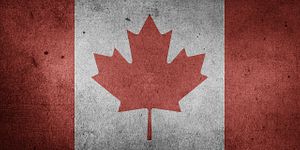By October 10, the Canadian diplomatic mission in India will lose almost two-thirds of its personnel. The sudden change in the Canadian diplomatic presence in India is one of the latest measures the Indian government has taken in the ongoing bilateral tensions. Previously, India stopped processing visitor visas in Canada and issued a travel advisory against Canada.
The recent diplomatic conflicts between Canada and India originated from a suspicious murder in Surrey, British Columbia. The conflict escalated in September after Canadian Prime Minister Justin Trudeau publicly accused India of undertaking a politically-motivated assassination against Hardeep Singh Nijjar, a Canadian citizen in Canada. India denied those allegations and categorized Nijjar as a terrorist.
Since then, Canada seems to have struggled to secure support from its traditional allies on the alleged assassination. While Trudeau insists he is not interested in escalating tensions with India, Canada is still suffering diplomatic reprisals from the world’s most populous country. Before the incident, Canada attempted to secure a trade agreement with India as part of its Indo-Pacific Strategy. The sudden halt of the trade talks and the subsequent diplomatic tensions impacted Canada’s foreign policy strategies.
Critics call Canada’s handling of India diplomacy a failure, yet it is essential to view Trudeau’s decision to publicly denounce India in the Parliament beyond the lens of foreign affairs. The rationale behind the Canadian government’s strategy is rooted in challenges in domestic politics, specifically from the ongoing public inquiries concerning foreign interference in Canada. The issue has significantly impacted the Trudeau government in 2023. Allegations from anonymous intelligence officials and significant media coverage have led to the resignation of the government-appointed special rapporteur and forced the Trudeau government to open a public inquiry on this high-political issue before the next general election.
Whistleblowers in Canada brought up serious allegations that challenge the integrity of the Canadian electoral system by accusing China of meddling in the 2019 and 2021 Canadian elections. Canadian intelligence reports also document tactics used by China to interfere with election outcomes, such as using illicit funds, social media disinformation, and intimidation against sitting members of Parliament and their families. In May 2023, Canada expelled a Chinese diplomat named Zhao Wei over allegations that the diplomat worked to target the family members of Conservative MP Michael Chong over his critical views on China. China denied the Canadian claims and expelled a Canadian diplomat from the Shanghai Consulate General in return.
Media reports and opposition parties have emphasized China’s actions in meddling in Canadian elections. However, on the first day of returning to the fall Parliament session, Justin Trudeau revealed India as a threat to Canada’s sovereignty in a speech before the body, implying that the inquiries of foreign interference should go beyond traditional targets such as China, Iran, and Russia.
While Trudeau is correct in expanding the scope of foreign interference, it is necessary to distinguish the different tactics India and China have adopted in Canada. In the past two Canadian general elections, China-controlled social media platforms have posed systemic challenges to political parties, candidates, and average voters.
China-controlled social media platforms such as WeChat, Weibo, and Xiaohongshu have sizable users in Canada and are especially popular among the immigrant diaspora communities. Yet users and content creators active on those platforms remain victims of political censorship from China, despite their physical presence in democratic countries. This increases the risk that information posted on China-controlled social media platforms will play a role in voting decisions made by Canadian citizens.
At the same time, it is difficult for political parties or candidates to engage with average users regarding their positions on specific policies on China-controlled platforms due to censorship. Topics such as the Tiananmen Square Massacre, reeducation camps in Xinjiang, Taiwan, and the Hong Kong National Security Law are political taboos, with nearly all content on the platforms echoing the same stances as Chinese state media. While social media companies may not be interested in engaging in politics or election issues, their presence in democratic countries and their significant user base have made these companies major stakeholders.
The Canadian government has few options in dealing with China-controlled social media platforms. In August 2020, the former Trump administration attempted to ban WeChat and TikTok in the United States. But the effort was halted by a federal judge and later dropped by the Biden administration.
Elections Canada documents show that WeChat was one of the platforms that the authorities monitored in the 2021 election for misleading and inaccurate information. However, the Canadian election authorities did not further investigate the social media platform despite seeing allegations of disinformation made after the election. In August 2023, Global Affairs Canada revealed an information operation campaign against Conservative MP Michael Chong on WeChat but did not take further actions against the social media platform.
The failure in the United States indicates the complexity of the issues, as banning social media platforms due to their political censorship and shareholding structure would not work in democratic countries. The Canadian government should examine the apps in detail to propose practical solutions to address the highly scrutinized foreign interference concerns.
Earlier in February 2023, Canada banned TikTok from government devices. The government needs to explore further options before the next general election by 2025.

































